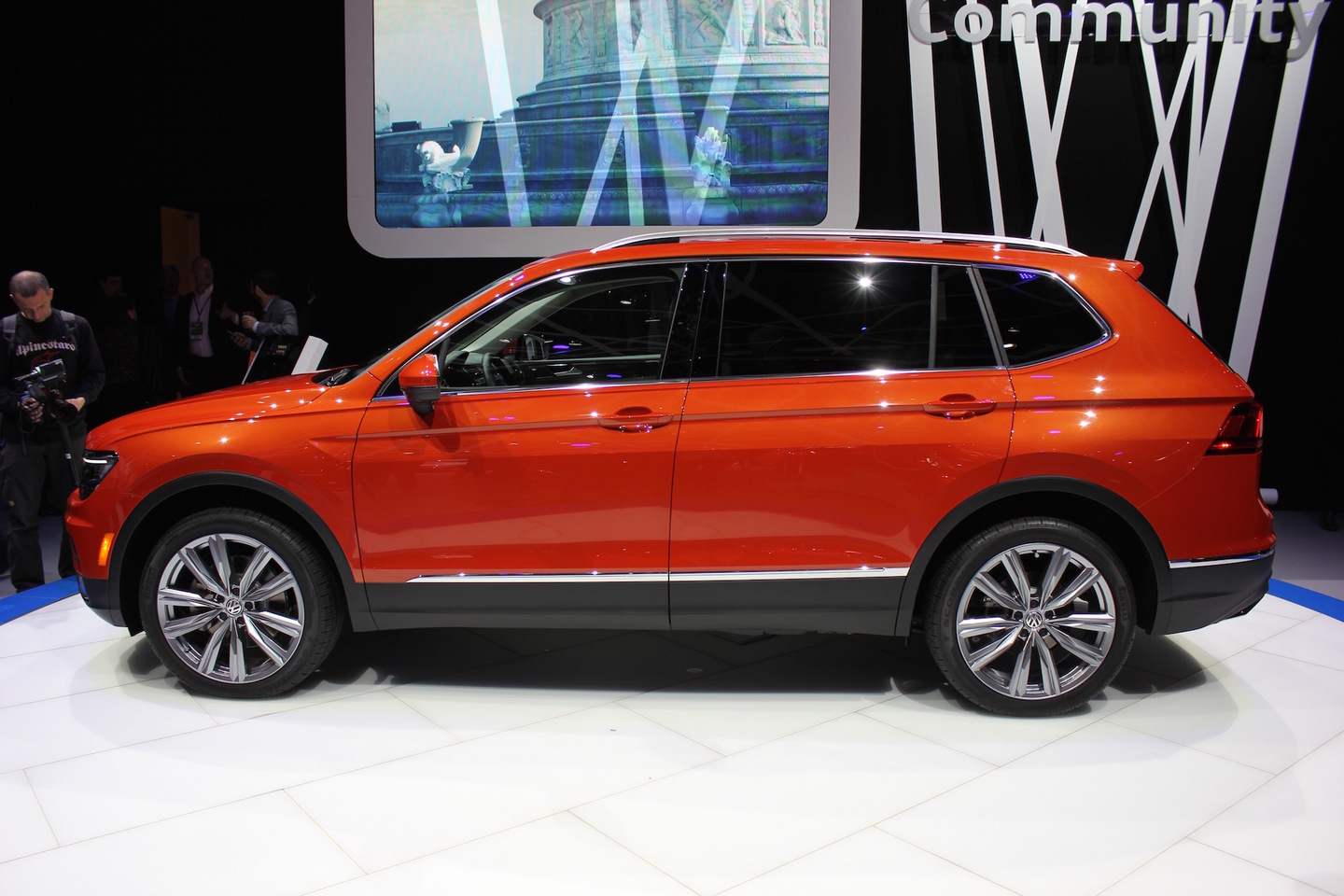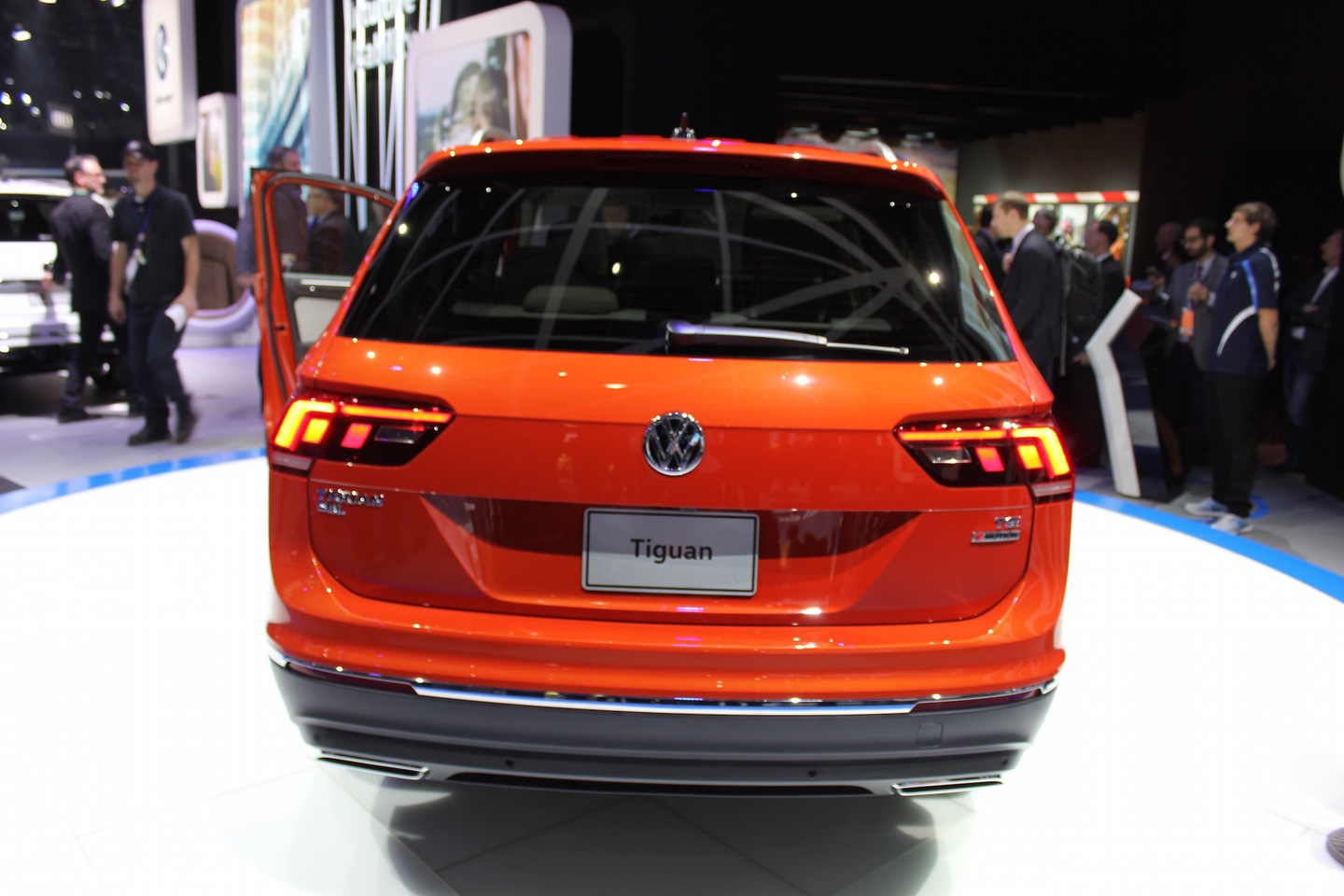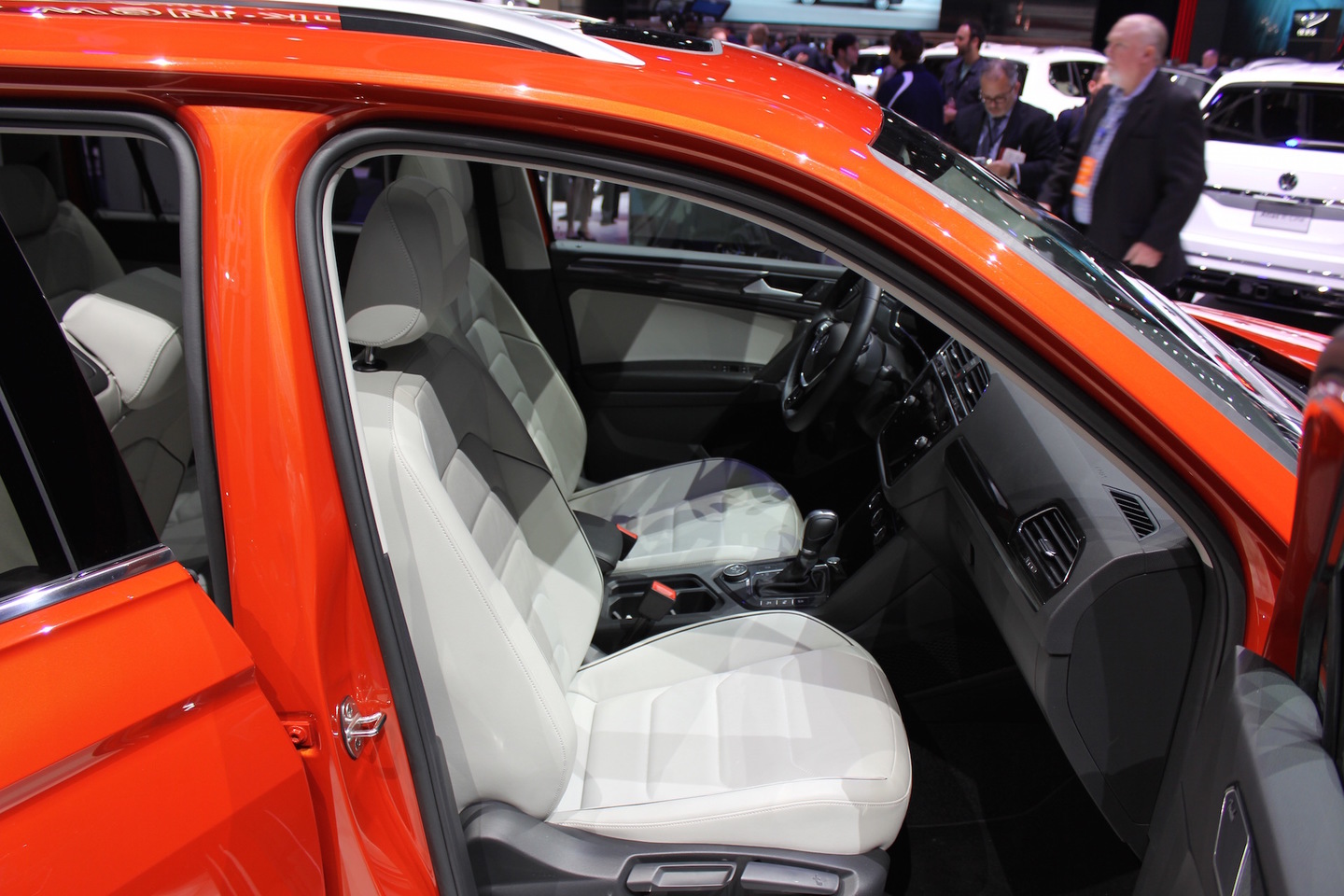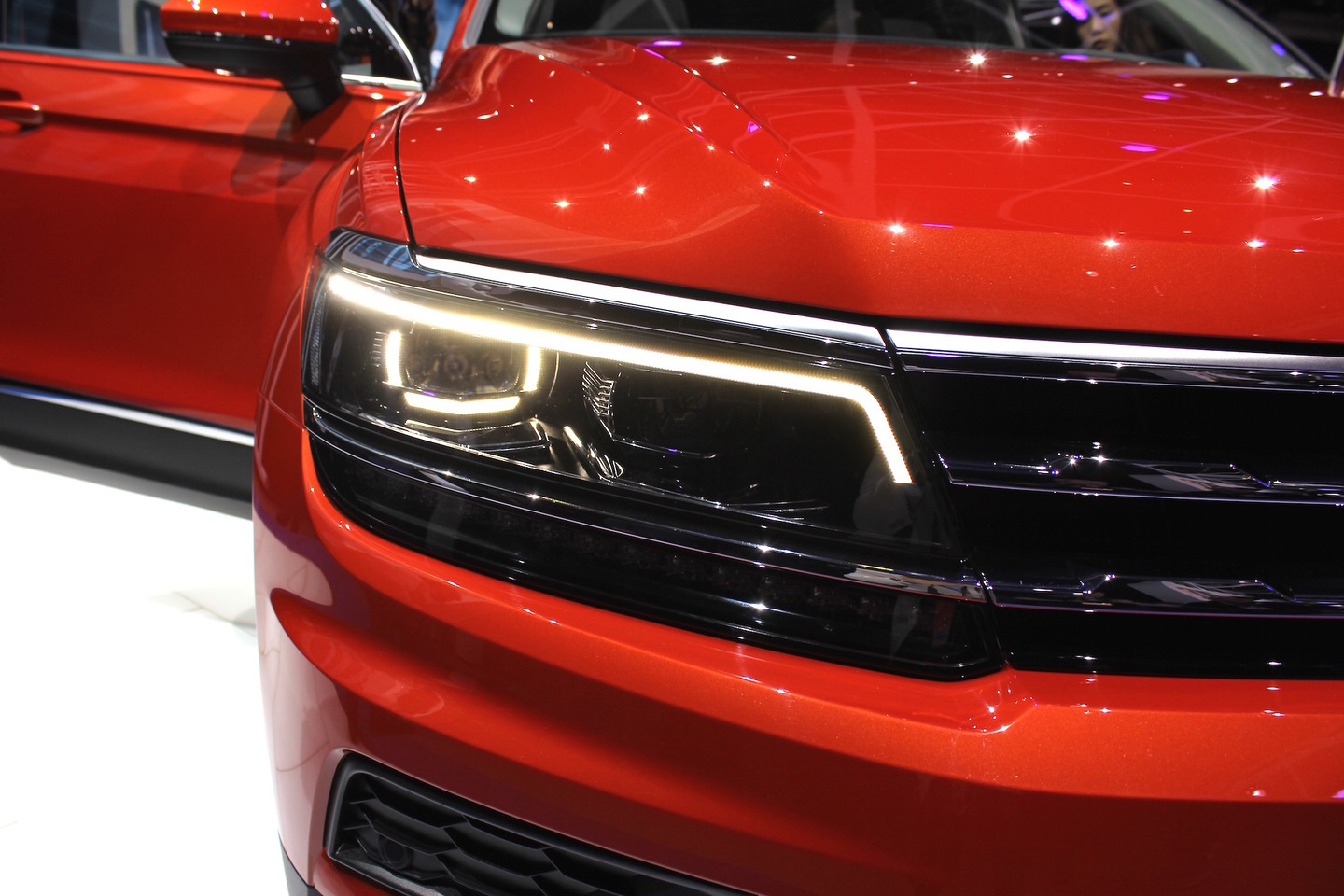The next model in Volkswagen’s crossover offensive is the brand-new, second-generation Tiguan. The soft-roader was unveiled during a private event held ahead of its public debut at the Detroit Auto Show.
The U.S.-spec 2018 Tiguan is closely related to the model sold in Europe. Both crossovers ride on Volkswagen’s modular MQB platform, but the version we’re getting here is 10.7 inches longer than the outgoing, first-generation Tiguan. The extra sheet metal gives it 57 percent more trunk space than its predecessor, and it clears up enough room for sliding second-row seats and an available third-row bench.
The new Tiguan’s front end is defined by a sharp, understated look that’s unmistakably Volkswagen. The design is characterized by sharp headlights underlined by LED daytime running lights, and a horizontal grille with three chromed slats. It’s not a full-on off-roader, but it nonetheless offers a respectable 26-degree approach angle. A roof-mounted spoiler adds a sporty touch to the overall look.
The cabin is more upscale than before, and it reflects the Wolfsburg-based automaker’s recent push toward more tech-focused cars. The Tiguan is available with a fully configurable digital instrument cluster — a feature that trickled down from the Audi lineup — and with the latest generation of Volkswagen’s touch-screen-based Car-Net infotainment system. The software is compatible with Android Auto, Apple CarPlay, and MirrorLink.
A rearview camera comes standard regardless of trim level. Safety-conscious buyers can upgrade the Tiguan with a long list of electronic driving aids that includes adaptive cruise control, forward collision warning, autonomous emergency braking, blind spot monitoring, and lane keeping assist. Finally, a class-exclusive automatic post-collision braking system instantly applies the brakes in the event of a crash to prevent secondary collisions.
At launch, the Tiguan’s only engine will be a 2.0-liter four-cylinder that’s both turbocharged and direct-injected. It delivers 184 horsepower and 221 pound-feet of torque. Front-wheel drive and an automatic transmission come standard, and Volkswagen’s 4Matic all-wheel drive system is available at an extra cost. It’s unclear at this point whether additional engines will join the lineup later in the production run.
Built in Puebla, Mexico, the 2018 Volkswagen Tiguan will go on sale in the coming months. Pricing information hasn’t been announced yet, but Volkswagen North America boss Hinrich Woebcken promises the model will be priced “very competitively.”














